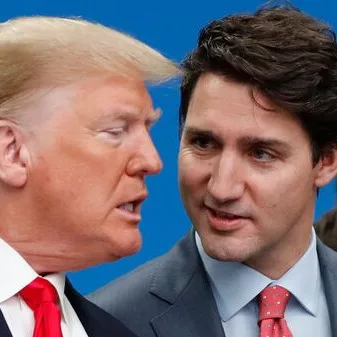In a bold political move, former President Donald Trump has announced a series of new tariffs aimed at imports from Canada and Mexico. This decision, implemented during a live announcement, has sparked immediate reactions from political leaders and economists alike. Canadian Prime Minister Justin Trudeau termed the tariffs “unacceptable” and warned of potential retaliation, stating, “We will defend our national interests.” Meanwhile, Mexico’s administration echoed Trudeau’s sentiments, emphasizing the importance of a fair international trade environment. The tariffs are set at 25% for steel and aluminum, a move that could significantly impact the manufacturing sectors in both neighboring countries.
On Wall Street, the stock market displayed volatility as investors reacted to the looming trade war implications. The Dow Jones Industrial Average fell by over 200 points shortly after the announcement, reflecting widespread concern over potential economic repercussions. “The uncertainty surrounding these tariffs could lead to an unpredictable economic landscape,” explained economic analyst Sarah Klein.
Trump’s tariffs are part of his America First strategy, which has become a hallmark of his business-oriented policies since his presidency. The announcement comes at a time when global trade dynamics are already strained, particularly due to supply chain disruptions from the ongoing pandemic.
In response to the tariffs, investors turned their attention to stocks in the affected sectors, with many turning bearish in anticipation of higher operational costs for companies reliant on imported materials. As the news unfolds, it remains to be seen how Canada and Mexico will formally respond to Trump’s aggressive stance on trade.
The political aftershocks of this announcement are likely to be felt in Washington, as members of Congress examine the implications of Trump’s tariffs on relations with America’s closest trading partners. With opinions sharply divided, Trump’s followers express support, stating these tariffs are vital for protecting American jobs, while critics warn of impending economic setbacks and increased consumer prices.













